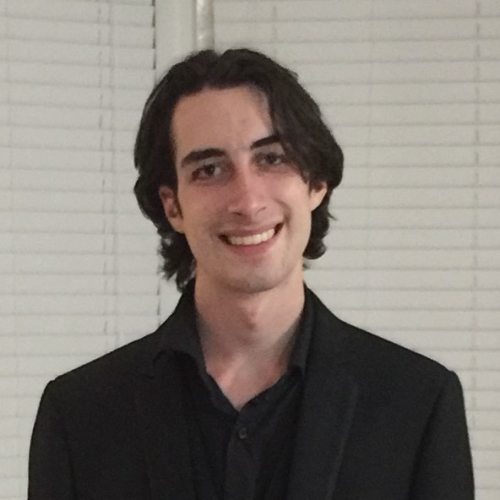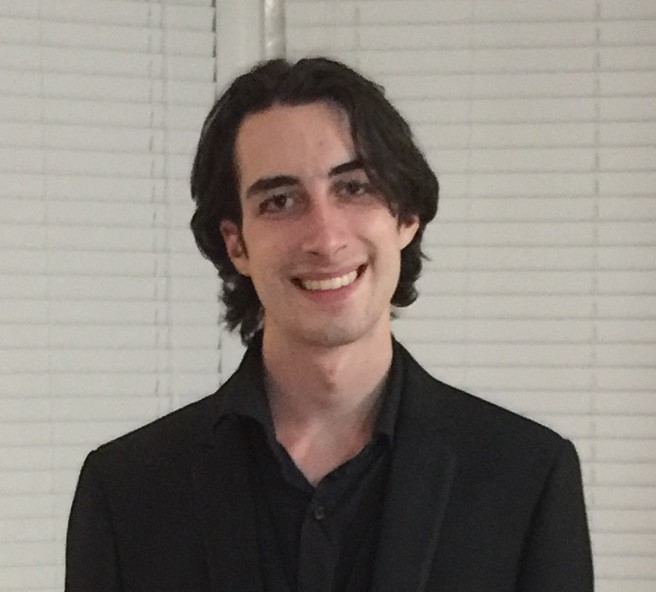
Cameron Shaw-Carmody
University of Newcastle
Cameron Shaw-Carmody is currently enrolled at the University of Newcastle in a Bachelor of Mathematics (Honours). He has also just completed a double degree of Bachelor of Mathematics, majoring in Pure Mathematics/Bachelor of Science with a Physics major. He intends undertaking postgraduate study that will enable him to be an academic. His research interests are Number Theory, Algebra, Cryptography and Theoretical Physics. His Honours project is investigating Prime Spectroscopy, which is a technique for studying prime number sequences and identifying if those sequences correspond to the zeros of an associated L-function. Cameron hopes that his background in both Physics and Mathematics will inform his research in both.
Can you give me a quick overview of the type of mathematics you are studying and its potential impacts for the broader community ?
I am studying cryptography, which is the theory and processes of encryption and decryption of messages and information. This is relevant to the broader community as it is the basis for all secure digital communications to ensure that only the intended receiver can access the encrypted information. These processes are used in transferring credit card details online, messaging apps such as WhatsApp, and Cloud-based document storage services like Dropbox.
How did you get into mathematics/statistics/data science? Was there someone or something that inspired you to this field?
When I was in late primary school, my teacher would have mathematical puzzles at the front of the class for students who finished their work early. Doing these puzzles instilled in me an appreciation and enjoyment of mathematics which has stayed with me throughout the rest of my education. The areas that I enjoy most in mathematics tend to be in pure mathematics, which can themselves often be seen as number puzzles.
You received a scholarship to attend AMSI Summer School 2022. How important was this in terms of your ability to attend, fully participate in the program and meet others studying in similar fields?
Receiving a scholarship allowed me to attend the Summer school since I did not have to find part-time employment to fund the admission fees.
The purpose of Summer School is to give students an opportunity to develop their mathematical skills, meet like-minded people and network with potential employers. What was the most valuable part of the program for you? Was it the course content or the people you met? Do you have new ideas for your work/research or see it in a new light?
The most valuable part was the courses on offer. My participation in the AMSI Summer School gave me the opportunity to gain knowledge in areas of mathematics which I otherwise would not have been able to study in my undergraduate degree at my home institution. Studying the AMSI Summer School Course in Cryptography has made me consider continuing to study within this field and incorporate it into future research, such as my Honours Project.
Summer School included a special Careers Day program which aims to help give students an idea of the kinds of career paths available to maths graduates in industry and private sector research areas. Were you previously aware of the types of industry opportunities available to mathematical science graduates? Would you consider working with industry? Do you feel better equipped to explore career options in the mathematical sciences after attending AMSI Summer School?
The Careers Day was helpful as it showed the diverse range of areas within academia and industry in which mathematics could be applied. While I was aware of most of the academic and research opportunities, such as the CSIRO or University research, I had not considered most of the industry jobs, such as an options trader or government work with the Australian Signals Directorate. I feel that now I know the breadth of career options available to me.
AMSI Summer School was held as a virtual event. What was the biggest positive from your point of view holding it in this format and/or the biggest challenge?
The biggest positive was that I was able to participate in the Summer School without needing to live in a different city for a month. This meant that I was still available for other commitments that I had in my home city. The biggest challenge was that it was difficult to connect with the other students at the Summer School, and so it felt like doing the course individually, rather than as a cohort.
What advice would you give to someone who is considering applying for Summer School in 2023? Should they apply and why?
I would recommend that they apply, as the subject they choose to study might become an area of research that they are passionate about. I would also recommend that they participate on campus if they have the opportunity, as this will allow them to meet new people with similar interests that they may be able to collaborate with in the future.
Where do you want the mathematical sciences to take you? Where do you see yourself in five, ten years time?
I would like to continue at University and complete a PhD. After that, I would like to become an academic at a university, participating in both research and lecturing in the fields of Number Theory and Cryptography.
Any other comments you would like to provide ?
Thank you for providing me with this opportunity.

